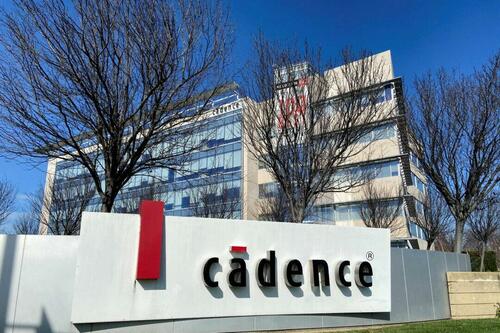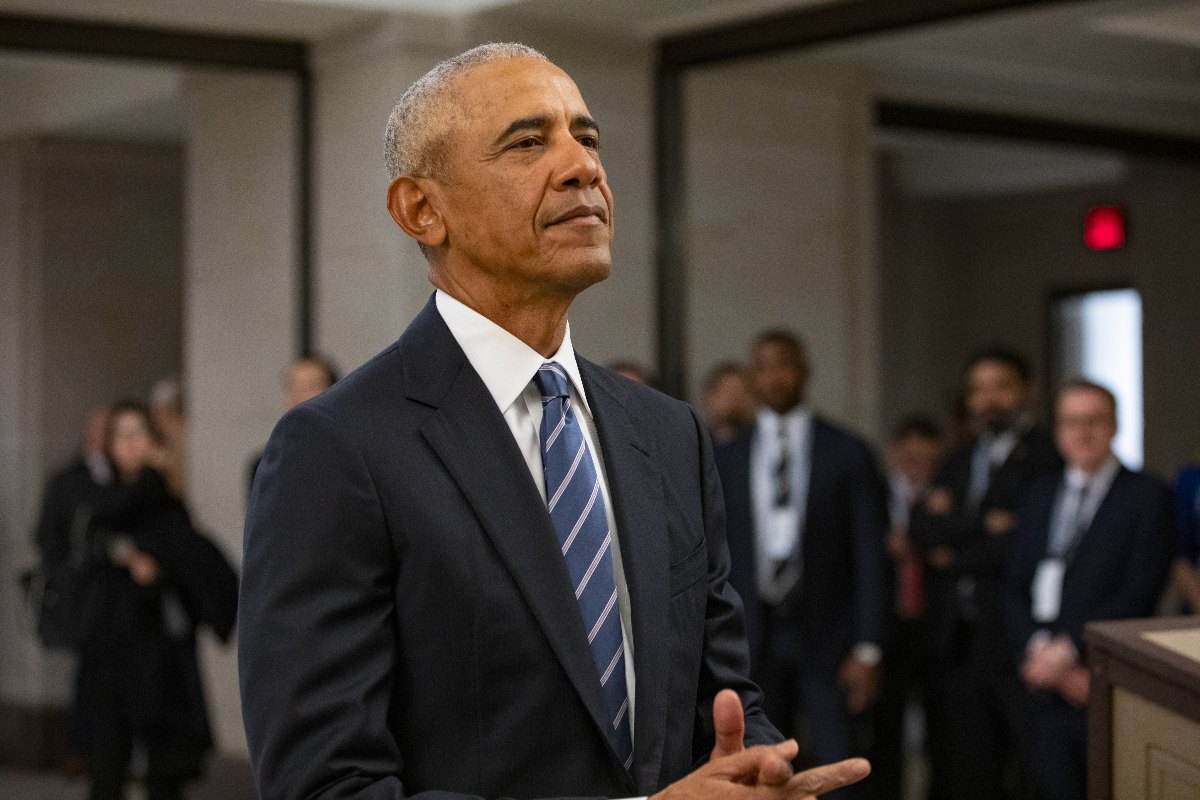
Cadence To Pay $140 Million For Selling Chip Design Tech To Blacklisted Chinese University
Authored by Bill Pan via The Epoch Times (emphasis ours),
Cadence Design Systems, a leading developer of electronic design automation (EDA) software and hardware, has agreed to pay a $140 million fine to settle claims that it illegally sold semiconductor design technology to a Chinese military university on the U.S. government’s export blacklist.
 The logo of Cadence Design Systems outside the company’s offices in San Jose, Calif., on Jan. 31, 2020. Stephen Nellis/Reuters
The logo of Cadence Design Systems outside the company’s offices in San Jose, Calif., on Jan. 31, 2020. Stephen Nellis/ReutersThe San Jose-based technology company admitted wrongdoing as part of a plea agreement announced on July 28 by the U.S. Attorney’s Office for the Northern District of California.
In the agreement, Cadence admitted to selling $45.3 million worth of export-controlled products and services to China’s National University of Defense Technology (NUDT) without a license to do so. The university, established and supervised by the Chinese Communist Party’s Central Military Commission, was added to the U.S. Department of Commerce’s Entity List in 2015 for using American-origin components to build supercomputers to simulate nuclear blasts and other military activities.
According to prosecutors, from February 2015 to April 2021, employees of Cadence’s China-based subsidiary sold and installed EDA hardware to NUDT’s campus. University personnel were also able to download EAD software and intellectual property from Cadence’s portals, even though Cadence employees knew NUDT was a blacklisted entity.
Internal company communications revealed that Cadence employees were informed by their export control officer on the day NUDT was added to the Entity List, prosecutors said. Nevertheless, they continued working with a front company known as CSCC, an alias for NUDT.
In one instance, Cadence’s then-head of sales in China instructed colleagues to refer to their customer as CSCC in English and NUDT only in Chinese characters to obscure the nature of the transactions, writing that “the subject [was] too sensitive,” according to prosecutors.
Cadence has agreed to pay nearly $118 million in criminal penalties. In parallel, the Commerce Department resolved a civil enforcement action with Cadence, resulting in an additional $95 million in civil fines.
As part of a coordinated settlement, the Departments of Justice and Commerce agreed to credit a portion of Cadence’s payments toward the other agency’s fines. After accounting for cross-crediting, Cadence will pay more than $140 million in combined criminal and civil penalties and asset forfeitures.
In addition, the company has agreed to a three-year probationary period, during which it must enhance export compliance protocols, cooperate with any ongoing investigations, and submit to government audits every year.
U.S. Attorney Craig H. Missakian of the Northern District of California called the settlement a “positive step” toward demonstrating “corporate responsibility.”
“Export controls safeguard America’s advanced technological know-how from falling into the wrong hands, which is particularly important in the Silicon Valley as the epicenter of groundbreaking innovation,” Missakian said in a statement.
In a notice filed with the Securities and Exchange Commission, Cadence said it is “pleased to have reached these settlements” and “believes they are in the best interests of Cadence, its customers and its stockholders.”
The plea agreement still needs a federal judge’s approval.
China remains the world’s largest market for semiconductors and related technologies, but rising national security concerns have led to increased scrutiny and restrictions on American firms doing business there.
Some of those restrictions have been relaxed recently. Earlier this month, the Commerce Department told Cadence, Synopsys, and Germany’s Siemens that it was lifting the requirement to obtain a license before exporting EDA tools to China.
The policy change comes as part of the agreement reached during trade talks in London and Geneva, aimed at easing trade tensions and rolling back escalating tariffs. In return, China agreed to resume exports of rare earth elements and the magnets made from them, which are critical to both defense and high-tech manufacturing industries.
Tyler Durden
Wed, 07/30/2025 – 22:35













